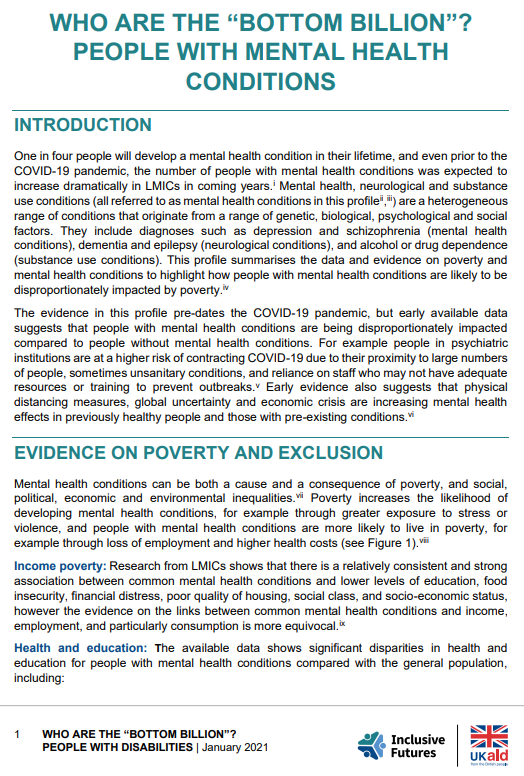This resource is part of a series of ‘poverty profiles’ by the Disability Inclusion Helpdesk (DI HD) focused on eight of the most marginalised group-based identities. It responds to the fact that global progress has not benefitted everyone equally, with many individuals remaining marginalised and extremely poor. Often, this is due to identity-based discrimination related to their disability status, age, ethnicity, or gender; and geographic disadvantage, for example through conflict or crisis. These disparities are often masked at the country level: with progress measured as an average across the whole population.
This profile summarises data and evidence on poverty and people with mental health conditions It highlights that mental health conditions can be both a cause and a consequence of poverty and inequality. The profile examines the evidence on people with mental health conditions, poverty and exclusion in relation to income poverty, health, education, employment, stigma, discrimination and violence, homelessness and institutionalisation. It also examines the intersection of poverty and mental health with other identities and with geography. It concludes with a focus on measurement and data, and limitations of existing data.
